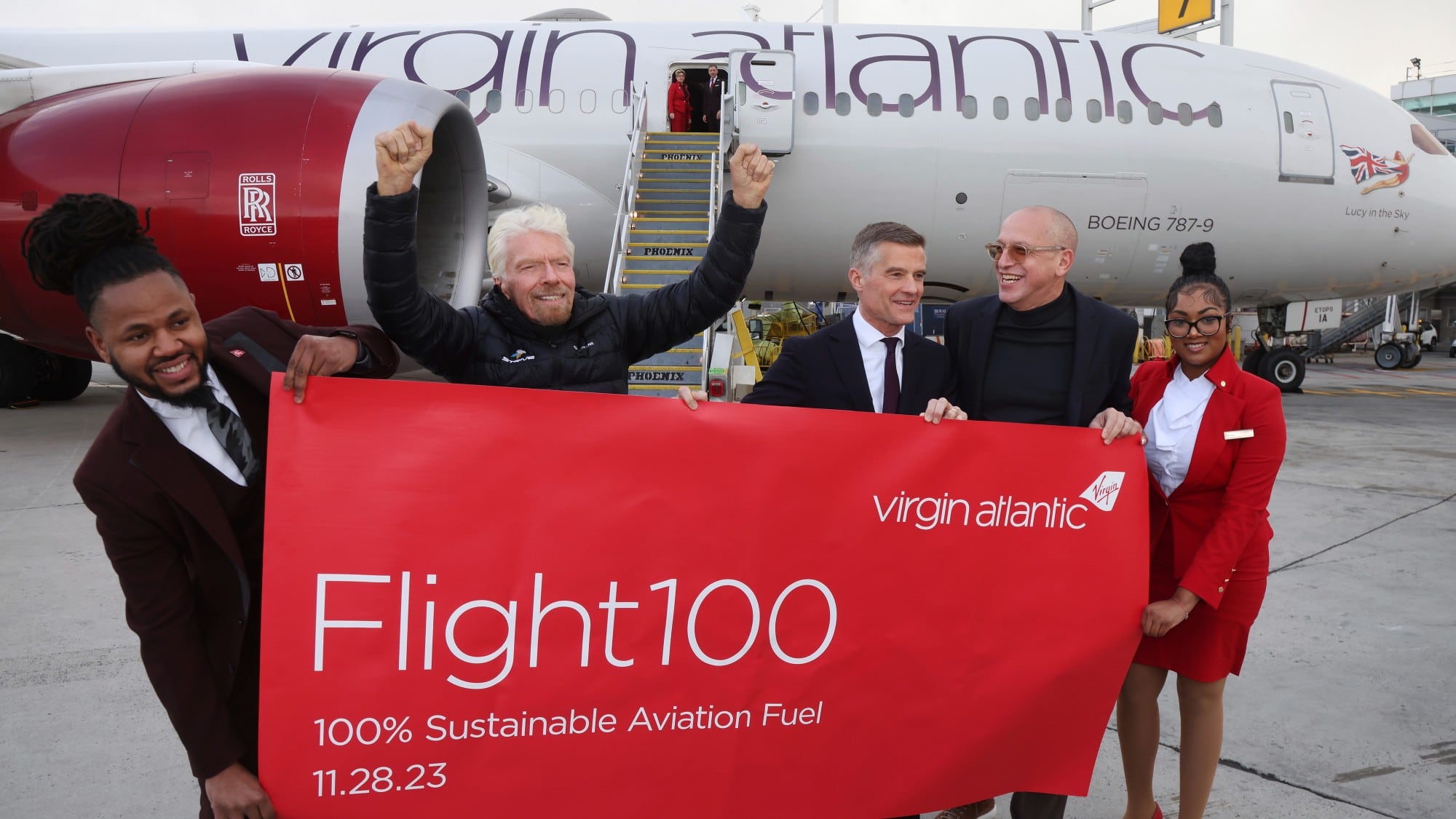By Brian Melley
The first commercial airliner to cross the Atlantic on a purely high-fat, low-emissions fuel flew Tuesday from London to New York in a step toward achieving what supporters called “jet zero."
The Virgin Atlantic Boeing 787 flight was powered without using fossil fuels, relying on so-called sustainable aviation fuel made up largely of tallow and other waste fats.
“The world will always assume something can’t be done, until you do it," said Virgin founder Richard Branson, who was aboard the flight with others including corporate and government officials, engineers and journalists.
The U.K. Transport Department, which provided 1 million pounds ($1.27 million) to plan and operate the flight, called the test a “huge step towards jet zero" to make air travel more environmentally friendly, though large hurdles remain in making the fuel widely available.
While governments have long talked about decarbonizing air travel, the transition has been moving at the pace of a dirigible.
Sustainable aviation fuel, which reduces greenhouse gas emissions by about 70%, is the best near-term way for the international aviation industry to achieve its net zero target by 2050, the U.S. Energy Department said, though it called the goal aspirational.
The U.S. Government Accountability Office said that while domestic production of the fuel had jumped from about 2 million gallons in 2016 to 15.8 million gallons in 2022, it accounted for less than 0.1% of the jet fuel used by major U.S. airlines. It was also a drop in the bucket compared to the goal of producing 1 billion gallons a year set in 2018 by the Federal Aviation Administration.
The White House, meanwhile, set a goal two years ago to produce 3 billion gallons of sustainable aviation fuel per year by 2030 and 100% of domestic commercial jet fuel by 2050.
The U.K. has set a goal that 10% of jet fuel will come from sustainable sources by 2030.
Holly Boyd-Boland, vice president of corporate development at Virgin Atlantic, said the flight shows that the fuel can power existing aircraft but said the challenge is ramping up production to "get to enough volume so that we’re flying more sustainable aviation fuel every day.”
But the group Aviation Environment Federation said the aviation industry was making misleading claims about the impact of sustainable fuel on carbon emissions.
“The idea that this flight somehow gets us closer to guilt-free flying is a joke," said policy director Cait Hewitt. Sustainable aviation fuel represents "around 0.1% of aviation fuel globally and will be very hard to scale up sustainably.”
While this is the first jetliner to make the trans-Atlantic journey using only the sustainable fuel, it was not a commercial flight and not the first jet to do so.
Gulfstream Aerospace was the first to make the crossing earlier this month with a business jet powered only by the eco-fuel. Air France-KLM flew from Paris to Montreal two years ago using a mix of petroleum-based jet fuel and a synthetic derived from waste cooking oils.









